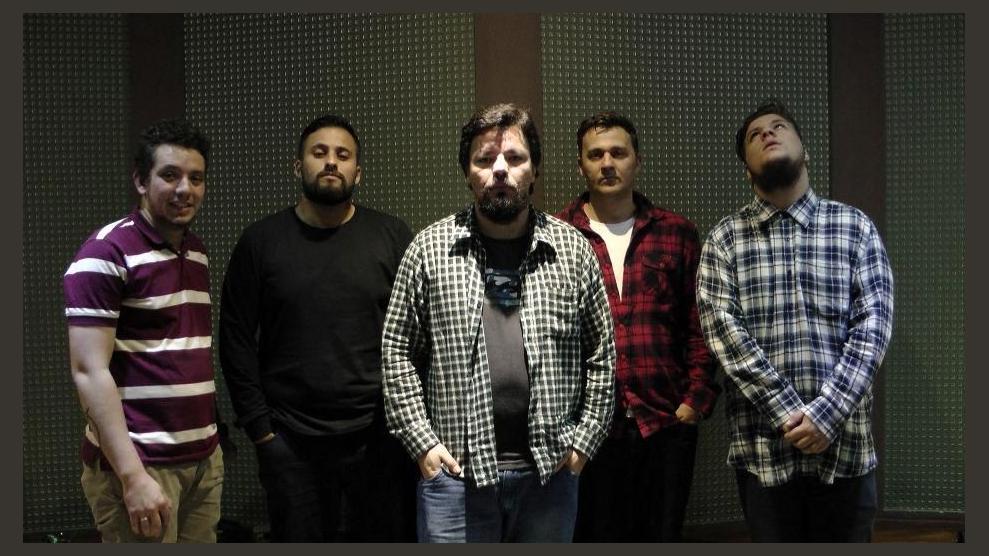 O-Culto
O-Culto
O-Culto: A Journey Through Music, Challenges, and Controversies
Inception and Early Days:
O-Culto emerged in Porto, Portugal in 1991 as an avant-garde music collective. With an eclectic blend of musical influences, including classical, folk, and rock, the band's unique sound captivated a niche audience. Their early performances were often characterized by experimental improvisation, shifting tempos, and enigmatic lyrics.
Artistic Vision and Controversies:
O-Culto's music and performances challenged societal norms and provoked intense reactions. Their songs explored themes of spirituality, existentialism, and the complexities of human nature. The band's enigmatic lyrics and theatrical stage presence drew both admiration and criticism from audiences.
Some of their most controversial moments occurred during live performances, where they engaged in provocative acts such as self-harm and nudity. These actions sparked debates about the boundaries of artistic expression and the role of music in society.
Discography and Notable Songs:
Over their illustrious career, O-Culto released a series of critically acclaimed albums. Their most iconic song, "Olhai Os Lírios do Campo" (Behold the Lilies of the Field), became an anthem for disaffected youth and earned them widespread recognition.
Other notable songs include:
* "O Sangue da Terra" (The Blood of the Earth)
* "O Espírito Santo" (The Holy Spirit)
* "Fado Tropical" (Tropical Fado)
Members and Collaborations:
The core members of O-Culto were:
* Paulo Furtado (vocals, guitar)
* Zé Pedro (bass)
* Pedro Renato (drums)
Throughout their career, the band collaborated with various musicians, including Arnaldo Antunes, Lídia Amado, and John Tchicai. These collaborations enriched their sound and expanded their musical horizons.
Challenges and Legacy:
Despite their success, O-Culto faced challenges throughout their career. Financial difficulties, internal tensions, and the intense scrutiny of the public took their toll on the band. However, their influence on Portuguese music and culture remains undeniable.
O-Culto's innovative and provocative music continues to inspire and divide audiences. Their ability to blend disparate musical genres and explore controversial themes has earned them a reputation as one of the most important and influential bands in Portuguese history.
Inception and Early Days:
O-Culto emerged in Porto, Portugal in 1991 as an avant-garde music collective. With an eclectic blend of musical influences, including classical, folk, and rock, the band's unique sound captivated a niche audience. Their early performances were often characterized by experimental improvisation, shifting tempos, and enigmatic lyrics.
Artistic Vision and Controversies:
O-Culto's music and performances challenged societal norms and provoked intense reactions. Their songs explored themes of spirituality, existentialism, and the complexities of human nature. The band's enigmatic lyrics and theatrical stage presence drew both admiration and criticism from audiences.
Some of their most controversial moments occurred during live performances, where they engaged in provocative acts such as self-harm and nudity. These actions sparked debates about the boundaries of artistic expression and the role of music in society.
Discography and Notable Songs:
Over their illustrious career, O-Culto released a series of critically acclaimed albums. Their most iconic song, "Olhai Os Lírios do Campo" (Behold the Lilies of the Field), became an anthem for disaffected youth and earned them widespread recognition.
Other notable songs include:
* "O Sangue da Terra" (The Blood of the Earth)
* "O Espírito Santo" (The Holy Spirit)
* "Fado Tropical" (Tropical Fado)
Members and Collaborations:
The core members of O-Culto were:
* Paulo Furtado (vocals, guitar)
* Zé Pedro (bass)
* Pedro Renato (drums)
Throughout their career, the band collaborated with various musicians, including Arnaldo Antunes, Lídia Amado, and John Tchicai. These collaborations enriched their sound and expanded their musical horizons.
Challenges and Legacy:
Despite their success, O-Culto faced challenges throughout their career. Financial difficulties, internal tensions, and the intense scrutiny of the public took their toll on the band. However, their influence on Portuguese music and culture remains undeniable.
O-Culto's innovative and provocative music continues to inspire and divide audiences. Their ability to blend disparate musical genres and explore controversial themes has earned them a reputation as one of the most important and influential bands in Portuguese history.